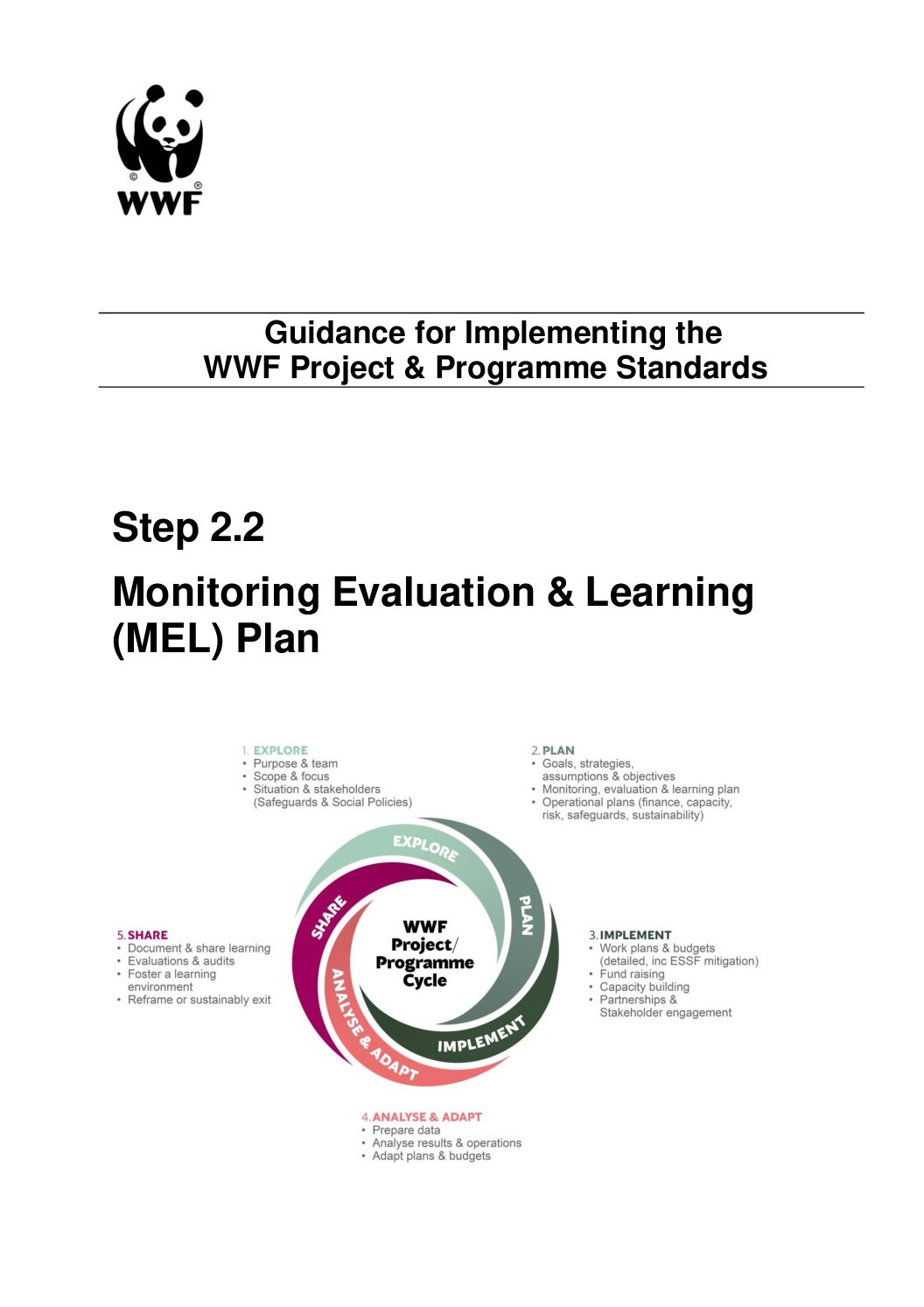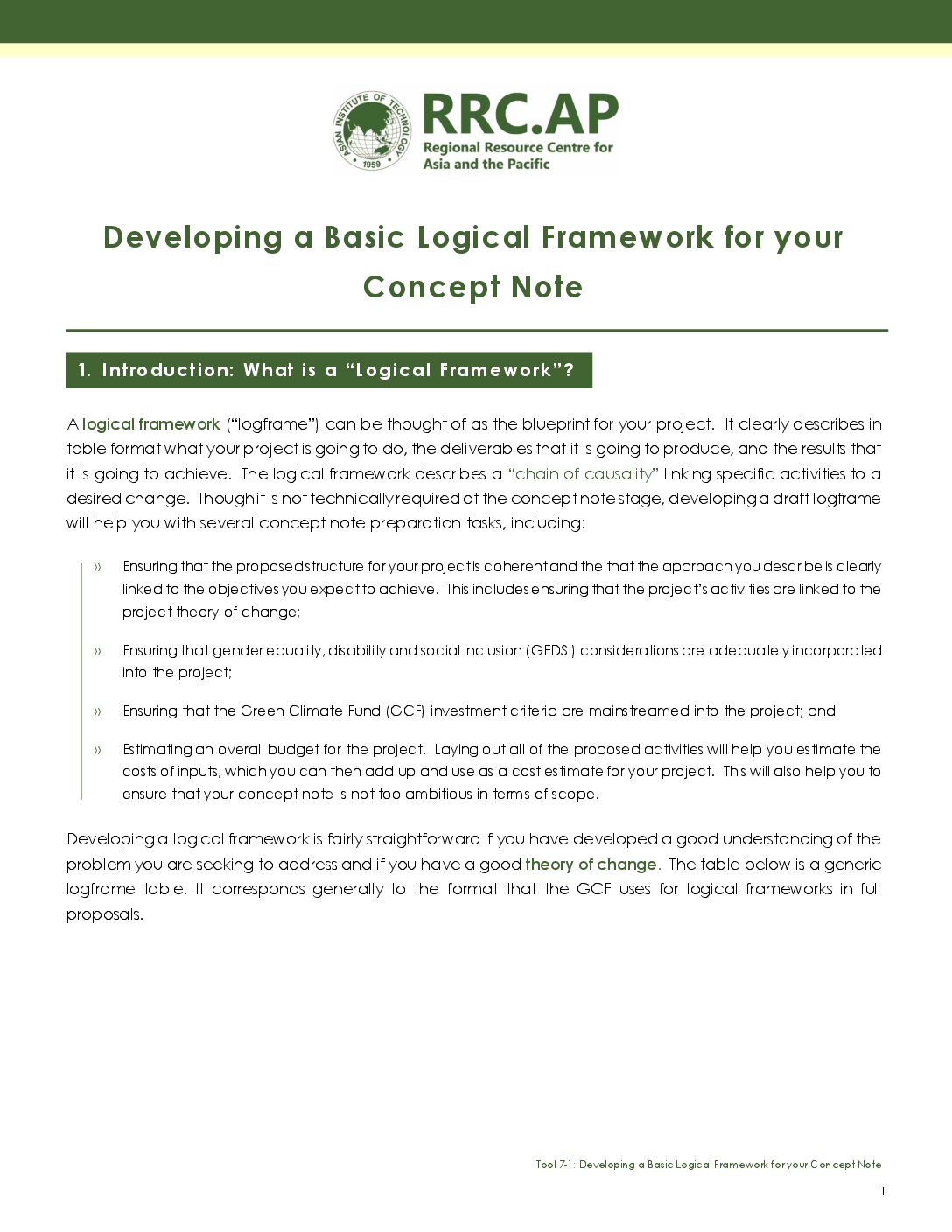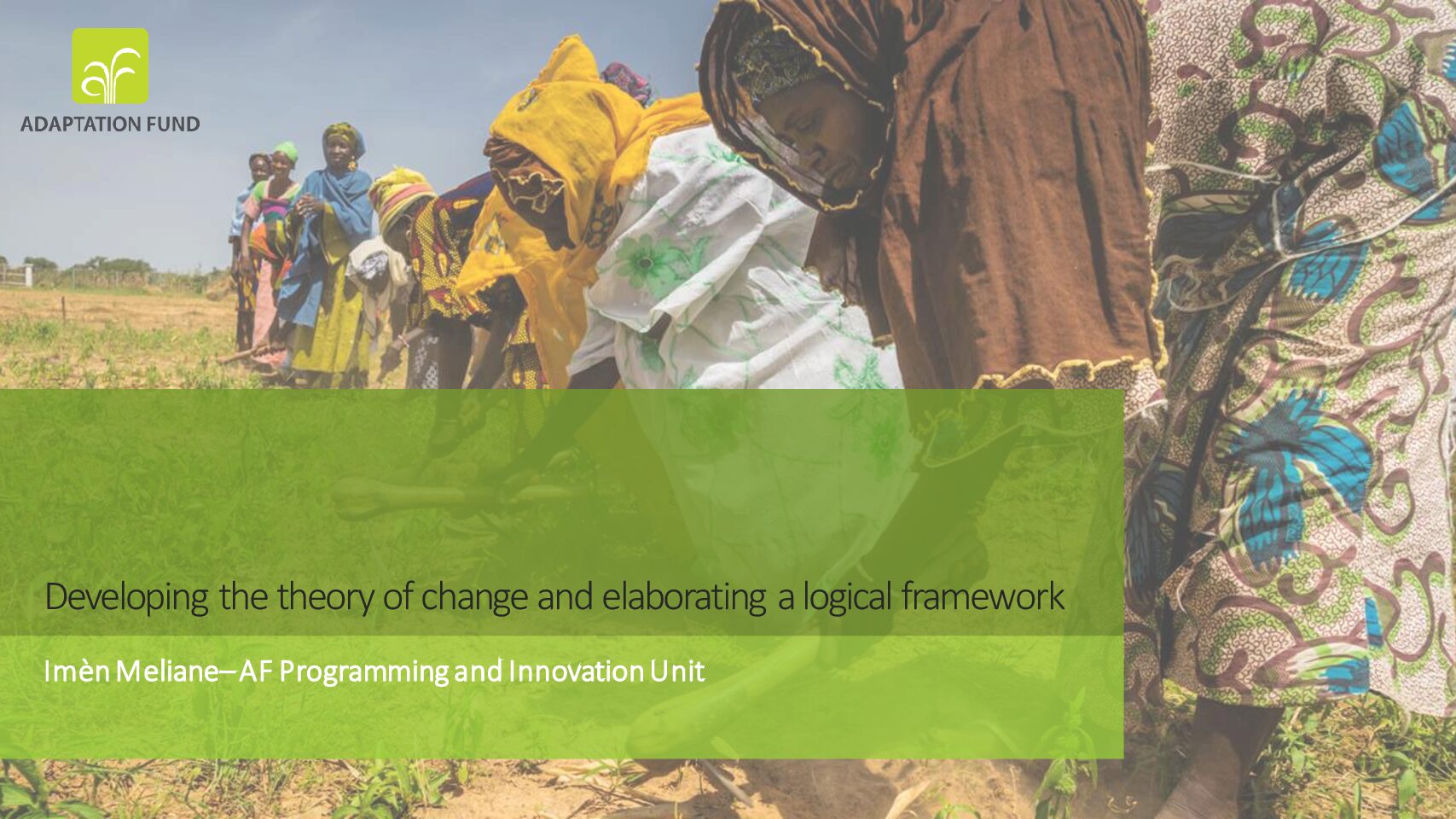This guide by the WWF explains the process of developing a monitoring, evaluation and learning plan for your project.
This page is part of a UNDP guide to enterprise risk management (ERM). It explains how to identify risks, how to classify them and how to determine a response.
This guide walks you through the different stages of developing a logical framework for a climate project. It was written for practitioners developing concepts for large Green Climate Fund programmes, so you may not need to include all of the aspects in your proposal, but it is nonetheless useful to know what funders like to […]
This slide deck explains briefly, and using visuals and examples, how to develop a theory of change and logical framework for your project.
These two blogs (available in English and Spanish) explain why you should undertake stakeholder mapping, how to go about it, and how to engage the stakeholders you have identified.
Identifying Factors Associated with Consumers’ Adoption of e-Mobility—A Systematic Literature Review
This article investigates the following questions: 1) What are the associated factors that affect the consumer’s intention to purchase EVs? (2) What is the impact of sociodemographic variables on the adoption of EVs? (3) What are the main obstacles to and motivators for introducing EVs and the expected recommendations for manufacturers, politicians, governments, and scientists?
This publication provides templates to support any city authority, business, institution or charity that wishes to effect a positive change in mobility behaviour.
The Global Innovation Hub aims to promote transformative innovations for a low-emission and climate-resilient future.
Institutions all over the world are setting up microcredentials in responses to calls from governments and industry: short courses, usually offered online by accredited institutions, with an emphasis on the needs of the workplace. They are also often used for retraining and upskilling. This book explains how to start offering microcredentials as an academic institution.
This guide aims to accelerate the flexibility and responsiveness of learning systems by providing guidance on the design, issue and recognition of micro-credentials.





